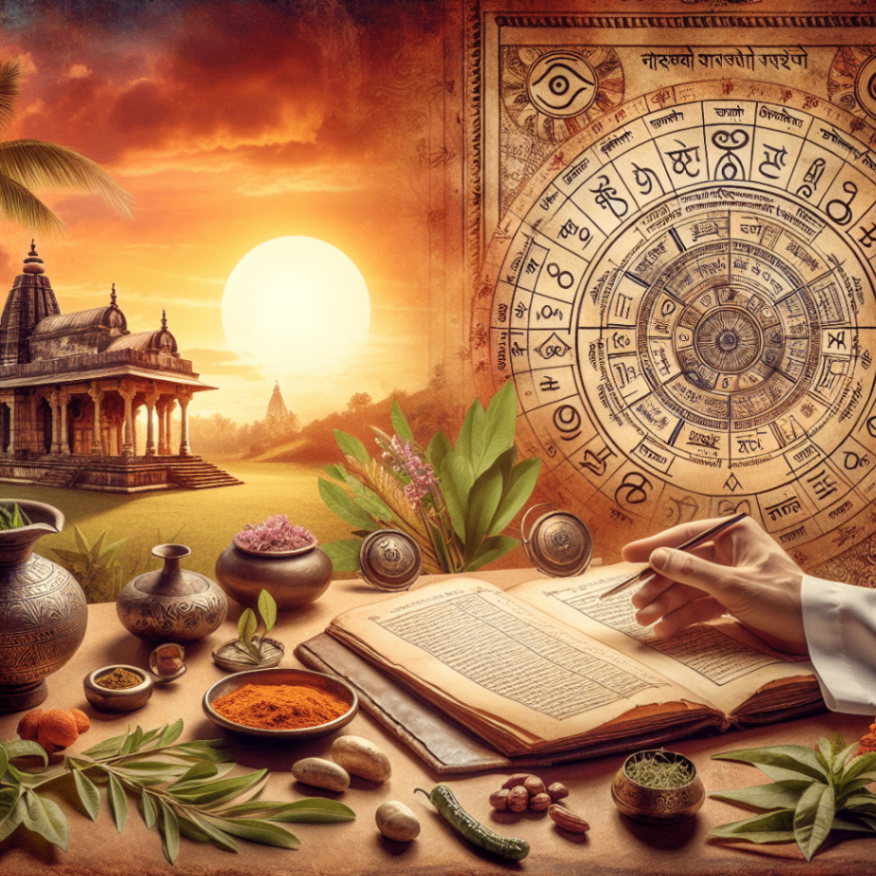Vedic astrology, or Jyotish, and Ayurveda are intertwined disciplines that share a deep connection rooted in the ancient Vedic tradition of India. These sciences provide a holistic approach to understanding not only the cosmos but also the individual's health and wellbeing. This relationship allows practitioners to assess health tendencies and medical conditions through astrological charts, offering a unique perspective on preventive health care and therapeutic measures.
Understanding Medical Astrology in Jyotish
Medical astrology in Jyotish examines the influences of planets and stars on an individual’s health. Each planet and sign in Vedic astrology is associated with different parts of the body, types of diseases, and Ayurvedic doshas (body constitutions)—Vata, Pitta, and Kapha.
For example:
The Sun is associated with vitality and the heart.
The Moon influences the mind and stomach.
Mars governs energy, blood, and muscles.
Mercury relates to the nervous system and skin.
Jupiter governs the liver and fat in the body.
Venus affects the reproductive system and kidneys.
Saturn rules the bones, teeth, and chronic conditions.
Rahu and Ketu, the lunar nodes, are associated with psychological issues and sudden, unpredictable diseases.
These planetary influences can help determine the balance of doshas in one's body, providing insights into their inherent constitution and potential health challenges.
Ayurvedic Constitution Through Jyotish
Ayurvedic constitution, or Prakriti, is the inherent balance of Vata, Pitta, and Kapha doshas that defines one's body type and characteristics. By examining the planetary positions in a Jyotish chart, particularly the positions of the Moon, Ascendant, Sun, and their lords, one can infer the dominant doshas in a person. For instance:
Vata is influenced by Saturn and Rahu, and is predominant in people with key planets in air signs (Gemini, Libra, Aquarius).
Pitta is linked to the Sun and Mars, often seen in fire signs (Aries, Leo, Sagittarius).
Kapha is associated with the Moon and Venus, common in water signs (Cancer, Scorpio, Pisces) and earth signs (Taurus, Virgo, Capricorn).
Practical Applications of Medical Astrology
Health Assessment and Prediction: By analyzing the Dasha (planetary periods) and transits, astrologers can predict periods of vulnerability to certain ailments and suggest proactive health measures.
Remedial Measures: Depending on the planetary influences, specific remedies such as gemstones, mantras, yoga, and lifestyle adjustments can be recommended to balance the doshas and mitigate potential health issues.
Diet and Routine Recommendations: Based on one’s dominant doshas revealed through their astrological chart, personalized dietary and daily routine advice can be provided, aligning with Ayurvedic principles to maintain or restore health balance.
Integration of Jyotish and Ayurveda in Modern Healthcare
Integrating Jyotish and Ayurveda into modern healthcare involves a respectful and knowledgeable application of these ancient sciences. Practitioners trained in both disciplines can offer a more comprehensive health management approach, focusing on prevention and the treatment of the root cause rather than just symptoms.
Furthermore, workshops and courses that educate individuals about the fundamentals of medical astrology and its integration with Ayurveda can empower people to take control of their health through deeper self-awareness and self-care practices influenced by their astrological predispositions.
Conclusion
The synergy between Vedic astrology and Ayurveda enriches the understanding of one's health and wellbeing from a holistic perspective. It offers tools for personal health optimization, emphasizing harmony between the microcosm (individual) and macrocosm (universe). As we continue to explore and validate these ancient wisdoms through practical applications and scientific research, the potential for a more spiritually aligned and preventative healthcare system emerges, promising a balanced approach to health that honors the interconnectedness of body, mind, and cosmos.






